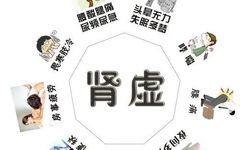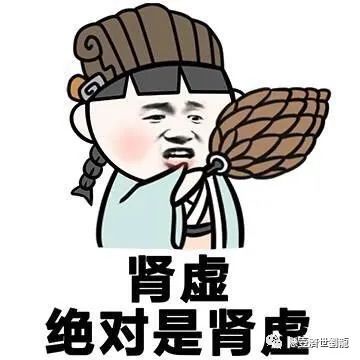 Heart Yin DeficiencyHeart Yin deficiency primarily manifests as: Traditional Chinese Medicine (TCM) considers blood to be Yin, hence the concept of Yin blood deficiency. Clinically, the symptoms of Heart Yin deficiency are similar to those of Heart Yang deficiency, such as palpitations, insomnia, and vivid dreams. However, due to the mutual balancing mechanism of Yin and Yang, when Yin is deficient, there is often a corresponding excess of Yang Qi, leading to Yang deficiency. In addition to some symptoms of Heart blood deficiency, symptoms such as heat in the palms and soles, night sweats, flushed cheeks, and tidal fever may also occur. The tongue is often red and lacks moisture, and the pulse is usually thin and rapid.◎ Lung Yin DeficiencyLung Yin deficiency primarily manifests as: When Lung Yin is insufficient, common symptoms of lung disease and symptoms of deficiency heat due to Yin deficiency predominate, presenting as a dry cough with little phlegm, or sticky phlegm, dry mouth and throat, emaciation, afternoon fevers, periodic tidal fevers, night sweats during sleep, or blood-streaked phlegm, hoarseness, a red tongue that lacks moisture, and a thin, rapid pulse.◎ Liver Yin DeficiencyLiver Yin deficiency primarily manifests as: Liver Yin deficiency is a pathological reflection caused by the deficiency of Yin fluids in the liver, generally characterized by liver disease symptoms and signs of Yin deficiency. Clinically, it is often seen with dizziness, tinnitus, dry eyes, heat and pain in the chest and ribs, as well as heat in the palms and soles, night sweats, dry mouth and throat, and a series of other symptoms. The tongue is often red and lacks moisture, and the pulse is wiry and thin.◎ Kidney Yin DeficiencyKidney Yin deficiency primarily manifests as: TCM believes that the kidneys contain true Yin and true Yang. Kidney Yin deficiency refers to the loss of true Yin in the body, which occurs when there is insufficient Yin fluid in the kidneys. Clinically, it is characterized by the main symptoms of kidney disease and signs of internal heat due to Yin deficiency, presenting as soreness and pain in the lower back and knees, dizziness, tinnitus, insomnia with vivid dreams, nocturnal emissions in men, reduced menstruation or amenorrhea in women, as well as heat in the palms and soles, tidal fever, and night sweats.
Heart Yin DeficiencyHeart Yin deficiency primarily manifests as: Traditional Chinese Medicine (TCM) considers blood to be Yin, hence the concept of Yin blood deficiency. Clinically, the symptoms of Heart Yin deficiency are similar to those of Heart Yang deficiency, such as palpitations, insomnia, and vivid dreams. However, due to the mutual balancing mechanism of Yin and Yang, when Yin is deficient, there is often a corresponding excess of Yang Qi, leading to Yang deficiency. In addition to some symptoms of Heart blood deficiency, symptoms such as heat in the palms and soles, night sweats, flushed cheeks, and tidal fever may also occur. The tongue is often red and lacks moisture, and the pulse is usually thin and rapid.◎ Lung Yin DeficiencyLung Yin deficiency primarily manifests as: When Lung Yin is insufficient, common symptoms of lung disease and symptoms of deficiency heat due to Yin deficiency predominate, presenting as a dry cough with little phlegm, or sticky phlegm, dry mouth and throat, emaciation, afternoon fevers, periodic tidal fevers, night sweats during sleep, or blood-streaked phlegm, hoarseness, a red tongue that lacks moisture, and a thin, rapid pulse.◎ Liver Yin DeficiencyLiver Yin deficiency primarily manifests as: Liver Yin deficiency is a pathological reflection caused by the deficiency of Yin fluids in the liver, generally characterized by liver disease symptoms and signs of Yin deficiency. Clinically, it is often seen with dizziness, tinnitus, dry eyes, heat and pain in the chest and ribs, as well as heat in the palms and soles, night sweats, dry mouth and throat, and a series of other symptoms. The tongue is often red and lacks moisture, and the pulse is wiry and thin.◎ Kidney Yin DeficiencyKidney Yin deficiency primarily manifests as: TCM believes that the kidneys contain true Yin and true Yang. Kidney Yin deficiency refers to the loss of true Yin in the body, which occurs when there is insufficient Yin fluid in the kidneys. Clinically, it is characterized by the main symptoms of kidney disease and signs of internal heat due to Yin deficiency, presenting as soreness and pain in the lower back and knees, dizziness, tinnitus, insomnia with vivid dreams, nocturnal emissions in men, reduced menstruation or amenorrhea in women, as well as heat in the palms and soles, tidal fever, and night sweats.
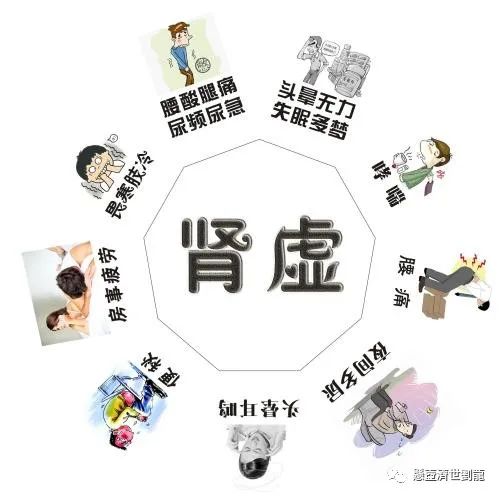
Symptoms of Yin deficiency include: Lung Yin deficiency 1. Cough with little or no phlegm, sometimes with blood in the phlegm. 2. Hot air exhaled from the nose, causing dryness in the nostrils. 3. Hoarseness lasting for days, shortness of breath, and dry throat. Liver Yin deficiency 1. Hair loss; 2. Blurred vision, hyperopia, decreased vision; 3. Short menstrual cycles, delayed menstruation, or amenorrhea; 4. Itchy and peeling skin on the face; 5. Soft nails, disappearance of the lunula; 6. Prone to muscle injuries and weakness; 7. Trembling of hands and feet; 8. Symptoms of Liver Yin deficiency are often present after miscarriage, cesarean section, or normal childbirth; 9. Blood stasis, easy bruising; 10. Heel pain (the soles are not hot).
Kidney Yin deficiency
1. Nocturnal emissions, dream emissions, loss of essence; 2. Heat in the soles of the feet; 3. Tinnitus and deafness (redness in the cheekbones, heat in the soles, dry throat); 4. Loose teeth; 5. Internal heat from bone steaming (generally fear of heat, reluctance to enter hot baths, fear of heat in sweat steaming); 6. Easy to achieve erection but with premature ejaculation; 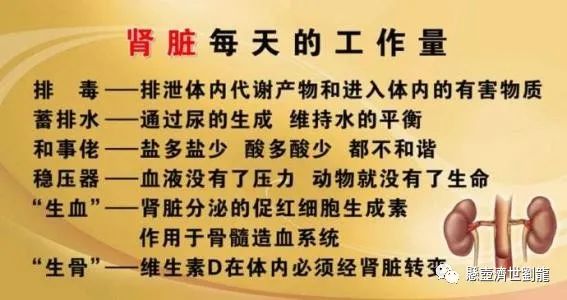
TCM emphasizes the balance of Yin and Yang, and Yin deficiency is a state of imbalance, indicating that there is a problem in the body. Yin refers to the body fluids, including blood, saliva, tears, semen, endocrine secretions, and oil secretions; Yang refers to the body’s functions.
Yin deficiency, also known as Yin deficiency with excess fire, commonly referred to as empty fire, primarily manifests as: fear of heat, irritability, flushed cheeks, dry mouth and throat, dry stools, short and red or yellow urine, a tongue with little moisture, and heat in the five hearts (the palms of both hands, the soles of both feet, and the crown of the head), night sweats, soreness in the lower back, nocturnal emissions, a red tongue, thin or peeled coating, and a thin, rapid pulse. Individuals with Yin deficiency exhibit insufficient Yin fluids, leading to a dehydrated state, resulting in dry eyes, dry nose, dry mouth, rough skin, and dry hair. Typical symptoms include irritability, insomnia with vivid dreams, dizziness, weakness in the lower back and knees, frequent urination with small amounts, rapid heartbeat, night sweats, heat in the palms and soles, and tinnitus.
Heart Yin deficiency—palpitations, night sweats, insomnia, forgetfulness, red tongue with little coating.
Liver Yin deficiency—afternoon tidal fever, irritability, dry eyes, and dizziness.
Spleen Yin deficiency—poor appetite, bad breath, abdominal distension, belching, and acid reflux.
Lung Yin deficiency—dry mouth and throat, deficiency heat, night sweats, and cough with little phlegm.
Kidney Yin deficiency—soreness and weakness in the lower back and legs, dizziness, fatigue.
Additionally, individuals with Yin deficiency are prone to “excess heat,” characterized by irritability, emotional fluctuations, and easily provoked anger. Therefore, those with Yin deficiency should frequently remind themselves to calm their spirit and maintain a stable mindset, as well as learn to timely redirect negative emotions.
Symptoms of Yin deficiency include: dizziness, tinnitus, insomnia with vivid dreams, forgetfulness, weakness in the lower back and knees, increased sexual desire, nocturnal emissions, reduced menstruation or amenorrhea, or abnormal uterine bleeding, emaciation, dry throat and mouth, tidal fever, heat in the five hearts, night sweats, flushed cheeks, a red tongue with little or no coating, and a thin, rapid pulse. Dry cough due to Yin deficiency: Symptoms include dry cough, short cough sounds, itchy throat, hoarseness, little phlegm or blood-streaked phlegm, along with dry mouth and throat or afternoon tidal fever, heat in the palms and soles, night sweats, emaciation, a red tongue with little coating, and a thin, rapid pulse. Due to Yin deficiency, fever, excessive sweating, vomiting, diarrhea, or blood loss, there may be insufficient fluid sources leading to reduced urine output, difficulty urinating, or complete urinary obstruction. Symptoms of Kidney Yin deficiency include soreness in the lower back and legs, dry mouth, irritability, heat in the palms, and excessive sweating. In men, Kidney Yin deficiency can lead to erectile dysfunction and other sexual dysfunctions.
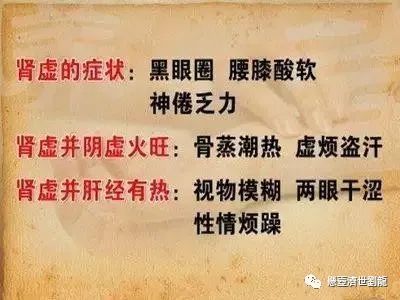
Symptoms of Yin deficiency in women include: hot and sticky sweat, shortness of breath, fear of heat, warm hands and feet, restlessness, thirst for cold drinks, or flushed complexion, red and dry tongue, thin and weak pulse. This is a manifestation of significant depletion of body fluids, indicating a critical condition that requires timely Yin nourishing and fluid replenishment. Severe cases can lead to the loss of Yin.
Nourishing Yin can alleviate symptoms of Yin deficiency in women. Due to Yin deficiency causing malnutrition in the body, it can severely impact health and life activities, especially among urban working women, who are prone to symptoms such as heat in the palms and soles, night sweats, dry throat, and dry mouth. Timely Yin nourishment can not only prevent the onset of Yin deficiency symptoms but also regulate existing adverse symptoms, achieving therapeutic effects. The harm of Yin deficiency to the body primarily leads to the weakness of the heart, liver, spleen, lungs, and kidneys, resulting in poor immunity, weak constitution, and decreased resistance.
Yin deficiency: also known as Yin deficiency with excess fire, commonly referred to as empty fire, primarily manifests as: fear of heat, irritability, flushed cheeks, dry mouth and throat, dry stools, short and red or yellow urine, a tongue with little moisture, and heat in the five hearts (the palms of both hands, the soles of both feet, and the crown of the head), night sweats, soreness in the lower back, nocturnal emissions, a red tongue, thin or peeled coating, and a thin, rapid pulse. Yang deficiency: also known as Yang deficiency with diminished fire, is a further development of Qi deficiency, primarily manifests as: in addition to the symptoms of Qi deficiency, fear of cold, cold extremities, preference for warm drinks, often low body temperature, soreness and weakness in the lower back and legs, erectile dysfunction, cold pain in the lower abdomen, fatigue, and difficulty urinating, pale tongue, white coating, and a deep, thin pulse. Supplementation should focus on warming Yang and benefiting Yang. 
Qi and Yin deficiency: characterized by both Qi deficiency and Yin deficiency, primarily manifests as: symptoms of dizziness, fatigue, and weakness in the legs, along with signs of heat and dry throat, red tongue, etc., but without chronic diseases. This constitution is referred to as Qi and Yin deficiency, and supplementation should consider both Qi and Yin. Yin and Yang deficiency: characterized by both Yin deficiency and Yang deficiency, referred to as Yin and Yang deficiency, primarily manifests as: fear of cold and heat, particularly sensitive to cold in winter and heat in summer, indicating an imbalance of Yin and Yang or a constitution of Yin and Yang deficiency. Supplementation should adopt methods that nourish both Yin and Yang, such as nourishing Yin and warming Yang, and tonifying Yin and Yang. Qi and blood deficiency: generally occurs in conditions such as anemia, leukopenia, thrombocytopenia, after significant blood loss, or excessive menstruation in women, primarily manifests as: symptoms of both Qi deficiency and blood deficiency, and supplementation should focus on benefiting Qi and nourishing blood, tonifying Qi and blood, and combining Qi and blood tonics.


Consultation WeChat ID

